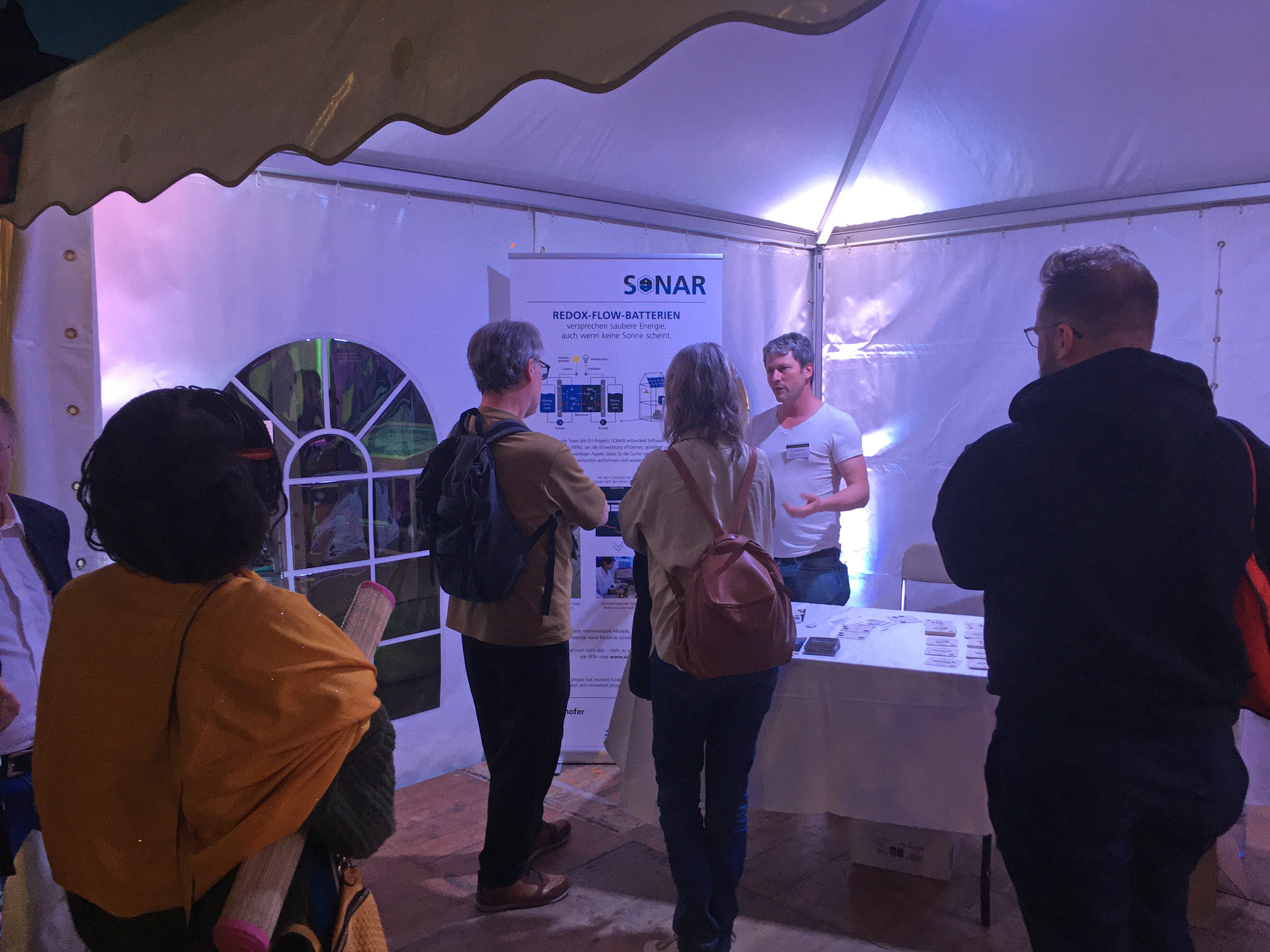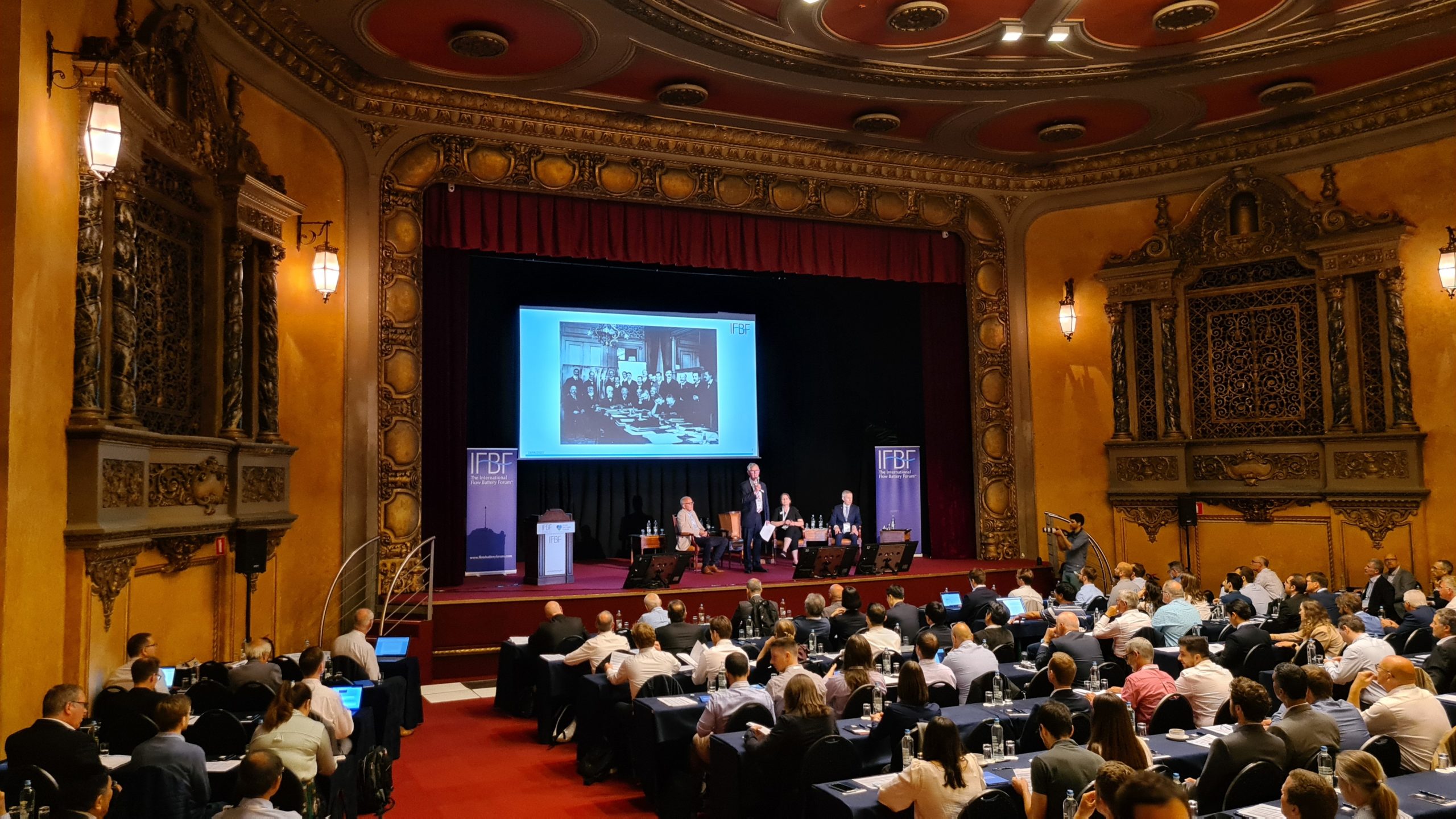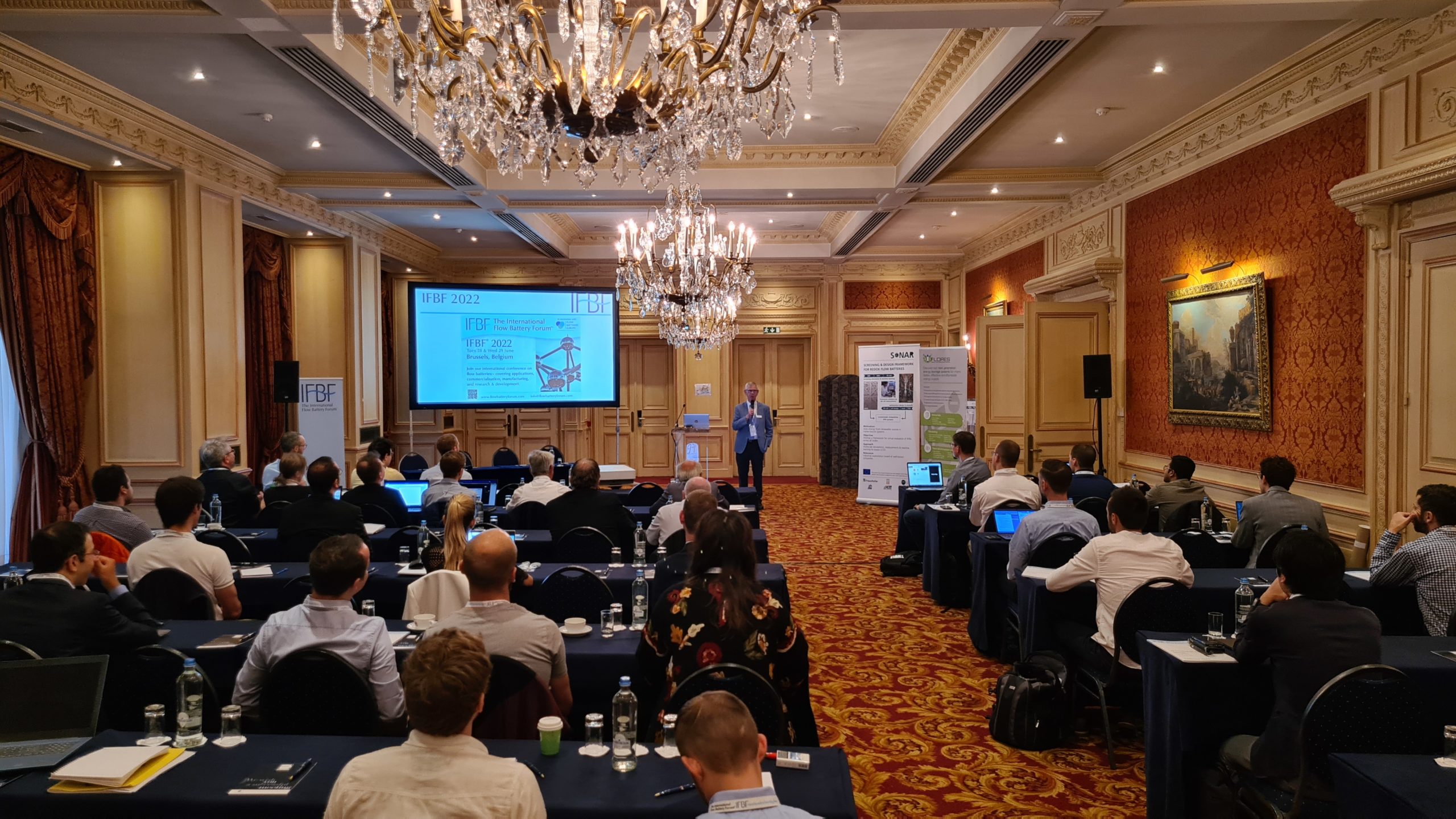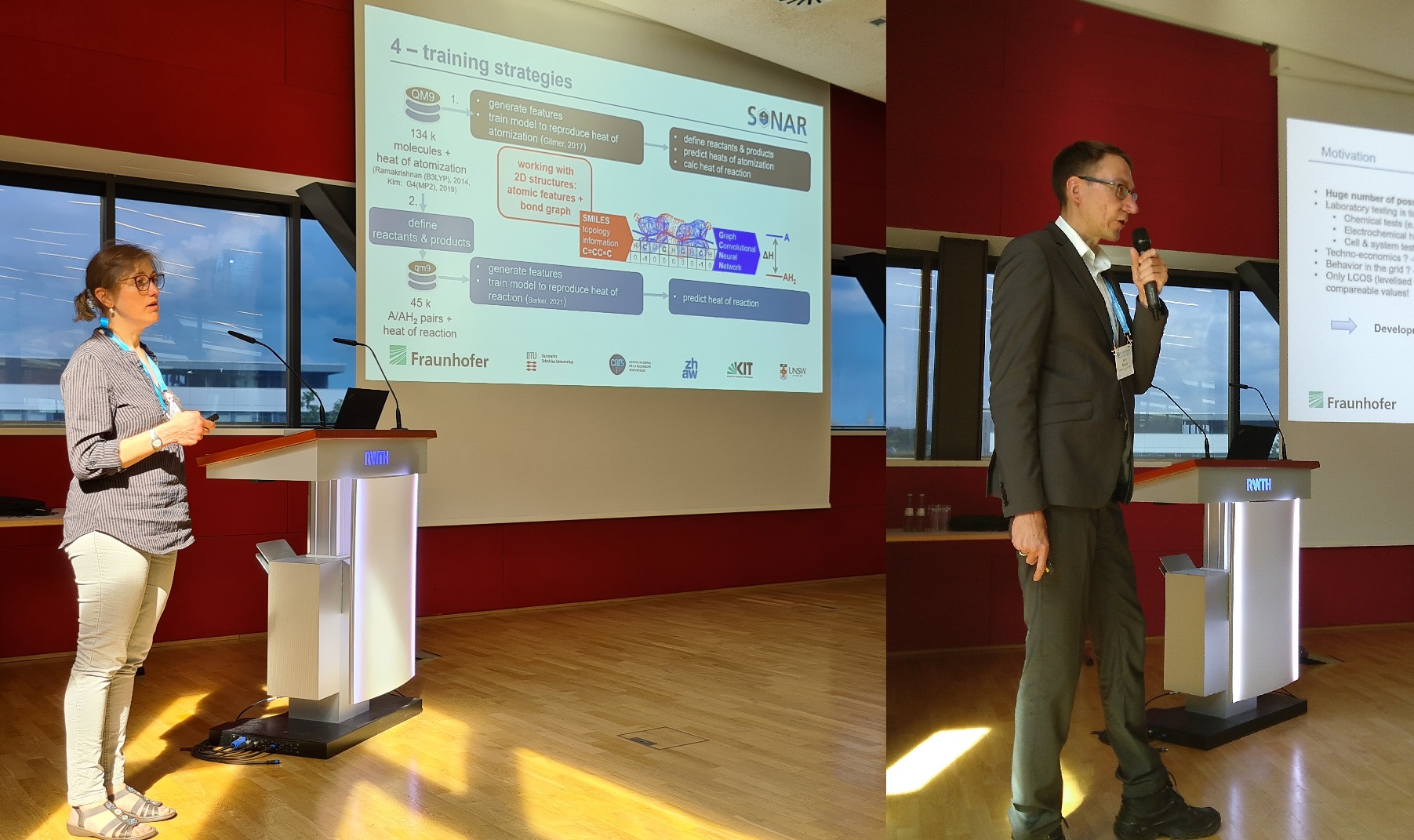The 31st Topical Meeting of the International Society of Electrochemistry was held in Aachen, Germany from May 15 – 19, 2022. Among the participants and as presenters were Dr. Astrid Maaß from the Fraunhofer Institute for Algorithms and Scientific Computing (Fraunhofer SCAI) and AA/Prof. Dr. Jens Noack (Fraunhofer ICT / University of New South Wales), project coordinator of SONAR. Astrid presented results from High-Throughput Screening to find new organic active materials for redox flow batteries during a talk and Jens gave an overview talk on the results achieved so far in SONAR.
SONAR is an international collaborative project of several outstanding research institutes and universities to develop a model-based tool to find new organic active materials for future redox flow batteries. https://www.sonar-redox.eu
The International Society of Electrochemistry is one of the two leading electrochemical societies worldwide and organizes different conferences in the field of electrochemistry every year. The 31st ISE Topical Meeting was attended by over 150 participants from a variety of different countries around the world.





